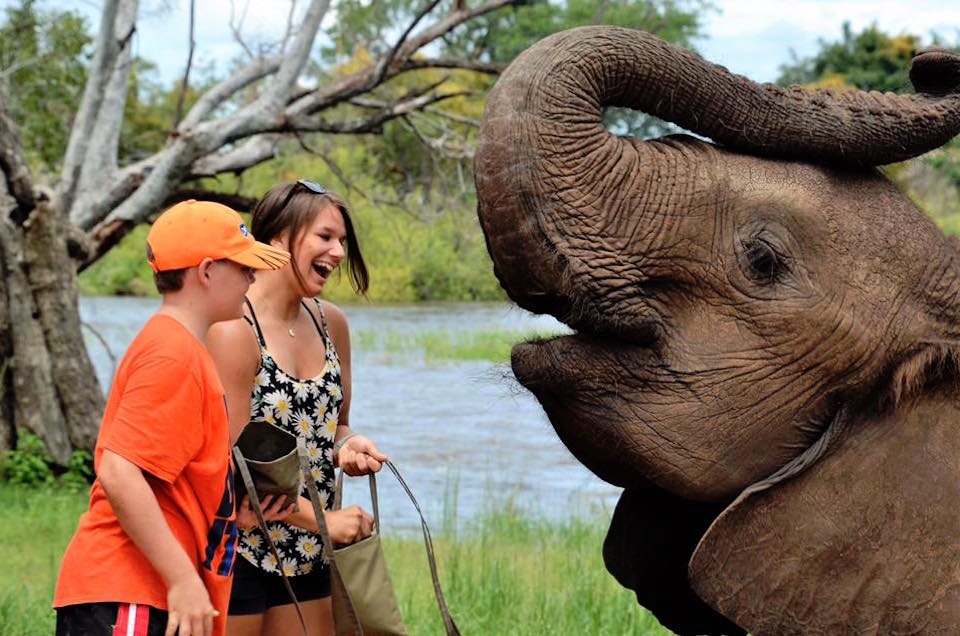Skift Take
A run of bad press and falling demand has forced segments of southern Africa's safari industry to take a long, hard look at their offering. The result? A more hands-off approach that's been a long-time coming.
 Editor’s Note: Skift launched a new series, Gateway, to broaden our news coverage geographically with first-hand, original stories from correspondents embedded in cities around the world.
Editor’s Note: Skift launched a new series, Gateway, to broaden our news coverage geographically with first-hand, original stories from correspondents embedded in cities around the world.
We are featuring regular reports several times per week from Beijing, Singapore and Cape Town, and look for us to add other cities soon. Gateway Cape Town, for example, signifies that the reporter is writing from that city although his coverage of the business of travel will meander to other locales in the region. Read about the series here, and check out all the stories in the series here.
Want to ride on the back of an elephant through the African Bushveld? Or perhaps walk alongside adolescent lions within earshot of Victoria Falls, viewing the momentous ‘smoke that thunders’ as the Zambezi surges down into the Batoka Gorge?
Best you book your ticket quickly, for the days of activities offering hands-on interactions with Africa’s megafauna are numbered.
Across southern Africa, tourism operators offering elephant-back rides and “walking with lions” experiences are phasing out their hands-on activities, or amended their offerings to keep animals at arm’s length.
Wilderness Safaris’ Abu Camp has long been popular for its elephant-back rides through Botswana’s Okavango Delta, but recently closed the activity to guests after a government ban came into effect in January.
“We had been engaging with the Botswana government about this issue for some time,” says Kim Nixon, managing director for Wilderness Safaris Botswana, which supported the ban. “We’re now offering a more immersive experience walking with the elephants, giving guests a deeper education and understanding of elephants.”
Zambian operator Zambezi Elephant Trails is also curtailing rides, and will phase out all elephant-riding operations by the end of 2017. Respected South African elephant outfit Camp Jabulani has also packed away the over-sized saddles in favour of an interactive educational “Elephant Experience” observing, rather than riding, the herd.
Most of the closures have been prompted by a run of bad press surrounding the lives of the animals before and after their time in the tourism industry. Reports abound on the often-cruel training methods used to source and domesticate elephants for tourist rides. Likewise, conservationists argue that walking alongside habituated lions is the first step for the endangered cats ending up in “canned hunting” operations.
In October, U.S.-based TripAdvisor ceased allowing users to book tours and activities involving contact with endangered species or captive wild animals.
Perhaps unsurprisingly, though, the truth isn’t entirely clear-cut. Many elephant-back operators have had to shut riding operations despite maintaining that their training methods are based on positive reinforcement, not violence. Likewise, operators promoting walking with lions argue – somewhat controversially – that their plan is to release these endangered cats into the wild.
Shake-Up Reverberates
Regardless of the opposing arguments, the shake-up has reverberated throughout the region’s tourism industry.
Global adventure tour operator Intrepid Travel phased out elephant rides on its worldwide tours in 2014, while African tour operator Thompsons Holidays says it has responded to the consumer backlash against elephant-back riding.
“Thompsons Holidays has ceased promoting any elephant rides and encounters, and these will be removed from our new brochures,” says spokesperson John Ridler.
Leading inbound safari operator Giltedge Travel has followed suit.
“For our groups and incentives we would normally offer elephant-back rides as one of the activities. However, with the recent change in attitudes and mindset of travellers towards these kinds of activities we have stopped offering them completely,” says group managing director Sean Kritzinger. “That said, we haven’t noticed any complaints from our clients, partly because there are just so many other offerings. In Victoria Falls there are 50 different activities to choose from.”
Pushback From Some Guests
However, while conservationists and eco-conscious clients applaud the scrapping of elephant-back rides, not all travellers agree.
“The majority of our guests, in fact, resisted our decision when we first communicated it. Having experienced the Camp Jabulani herd first-hand, they understood that ours was an operation solely focused around the well being of the elephants in our care,” says Adine Roode, owner of Camp Jabulani.
“We have had complaints from guests who wanted to ride but now can’t, so there is an impact, but there has also been extremely positive feedback from clients and the travel trade applauding us for the decision,” adds Dixon from Wilderness Safaris.
“We’re definitely finding that our clients are looking for a more remote experience; they’re looking for something a lot greener,” adds Kritzinger.
While dozens of operators continue to offer lion encounters and elephant-back rides across southern Africa, the recent closures are a bellwether of the changing attitudes; the first trickle in a rising tide of eco-minded travellers arriving in search of a more ethical brand of African adventure.
The Daily Newsletter
Our daily coverage of the global travel industry. Written by editors and analysts from across Skift’s brands.
Have a confidential tip for Skift? Get in touch
Tags: africa, gateway, safaris
Photo credit: Travelers interacting with an elephant near the Victoria Falls Waterfront in Livingstone, Zambia. Zambezi Elephant Trails says it will end its elephant-riding operations by the end of 2017. Zambezi Elephant Trails
